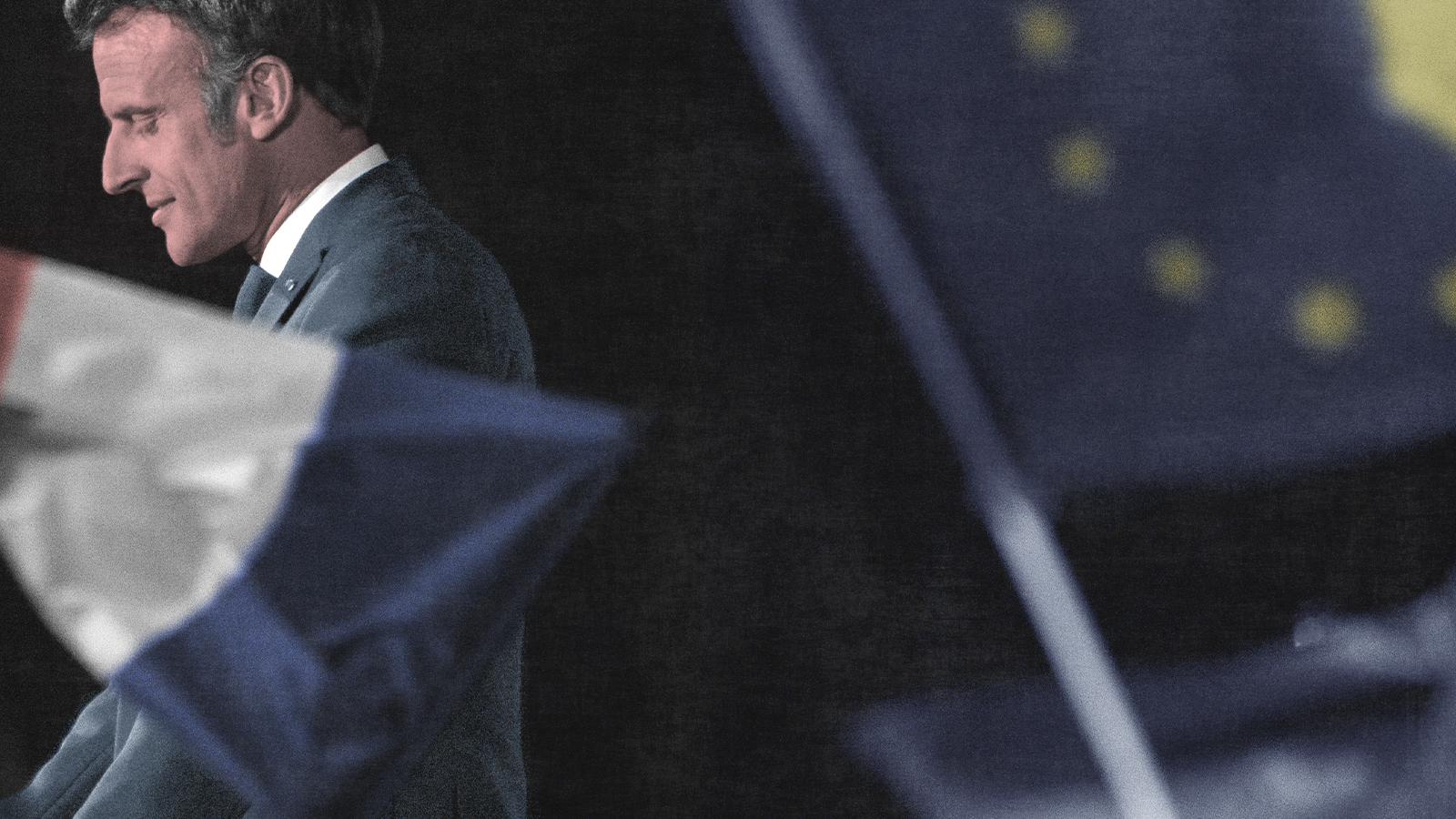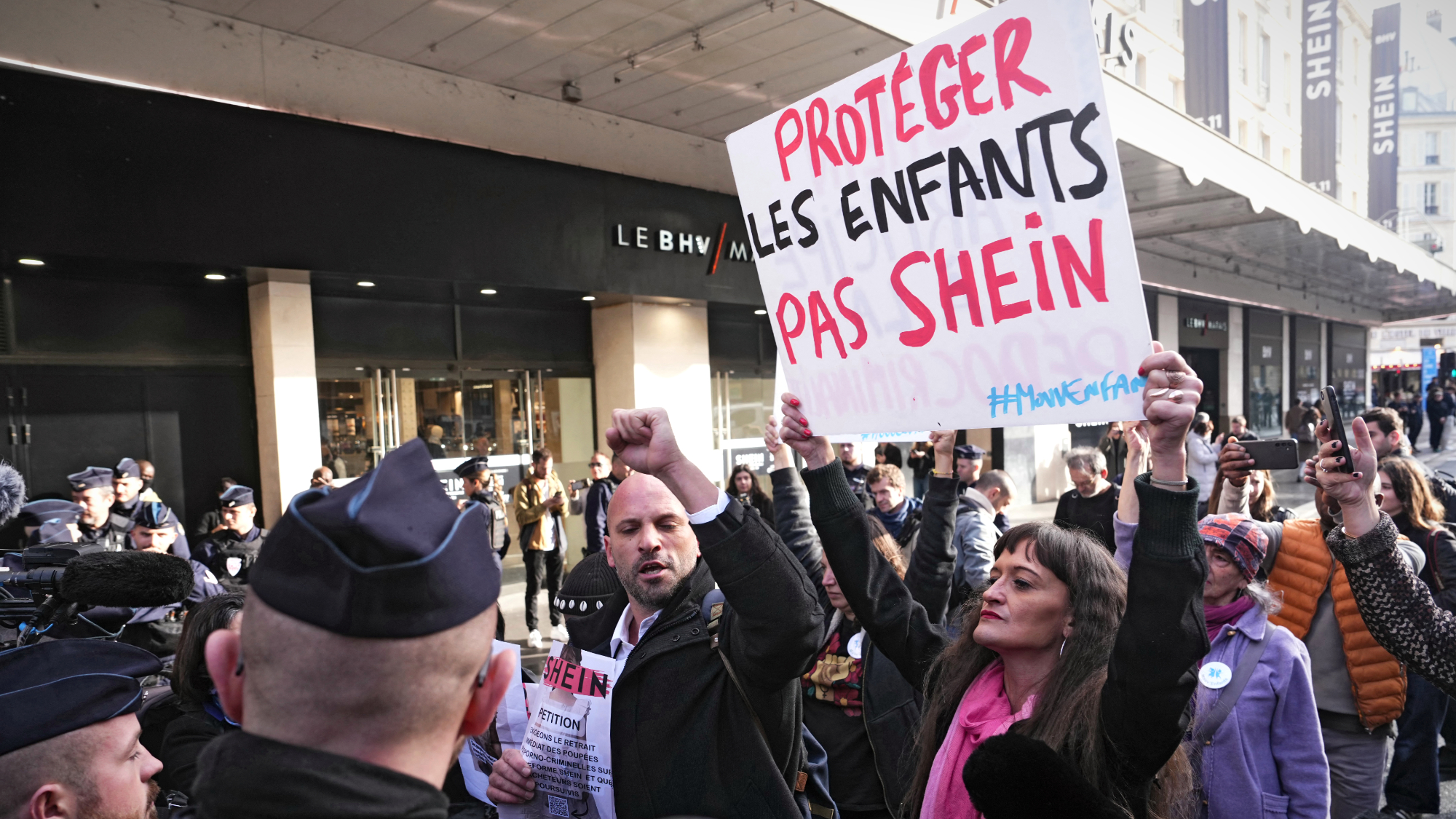The liberal center holds in France, but how long can it last?
The battle between liberals and antiliberals is just getting started


A free daily email with the biggest news stories of the day – and the best features from TheWeek.com
You are now subscribed
Your newsletter sign-up was successful
Liberals across the Western world are rejoicing at the news that incumbent Emmanuel Macron roundly defeated the right-wing antiliberal candidate Marine Le Pen in the second round of France's presidential election on Sunday.
The celebration is warranted. Macron didn't just win. He won by nearly 17 points — 58.3 to 41.6 percent — a popular-vote margin wider than any seen in a U.S. presidential election since Ronald Reagan won re-election in a landslide nearly 40 years ago. That's a decisive victory for the center and a resounding defeat for its opponents.
But that doesn't mean complacency is in order. On the contrary, when the election results are placed in the broader historical context, it's clear that the battle in France between liberals and antiliberals, center and periphery, is far from over. Indeed, if recent trends continue, the likelihood of a defeat for the center and triumph of the antiliberal right or left will continue to rise, with one of the extremes running a good chance of prevailing in the coming years.
The Week
Escape your echo chamber. Get the facts behind the news, plus analysis from multiple perspectives.

Sign up for The Week's Free Newsletters
From our morning news briefing to a weekly Good News Newsletter, get the best of The Week delivered directly to your inbox.
From our morning news briefing to a weekly Good News Newsletter, get the best of The Week delivered directly to your inbox.
Consider: When Marine Le Pen's father Jean-Marie Le Pen, the long-time ultranationalist head of the far-right National Front (FN), made it into the second round back in 2002, he was crushed by the center-right Jacques Chirac 82.2 to 18.8 percent. Fifteen years later, with the FN now led by the younger Le Pen, the result was another decisive loss, 66.1 to 33.9 percent, this time to Macron, who was leading a newly formed En Marche party of neoliberal centrism. Macron won his victory by turning the election into an all-hands-on-deck referendum on the fate of fascism in France, with voters from across the spectrum urged to cast an anti-Le Pen vote in favor of himself.
Between 2017 and 2022, Le Pen changed the name of her party (it's now called National Rally) and worked to stake out somewhat more moderate positions on issues. The result in the first-round vote on April 10 was a plurality for Macron with 27.9 percent and a second-place showing for Le Pen at 23.2 percent, 1.9 points higher than her first-round result five years earlier.
But that wasn't the only shift away from the center. A candidate even further to the right, xenophobic firebrand Éric Zemmour, won 7 percent, while the far-left Jean-Luc Mélenchon came in third, with 22 percent. Add in the combined 5 percent won by the French communists and Résistons, a small ruralist and social conservative party, and that's a total of 57.2 percent voting for parties sharply opposed to the political center.
In the two-week run-up to the second-round vote, Macron attempted the same emergency move that brought him to victory five years ago, calling on the French nation to unite in opposition to the threat of extremism. It worked again, though this time with Le Pen finishing 7.7 points higher than she did in 2017.
A free daily email with the biggest news stories of the day – and the best features from TheWeek.com
Has the far-right now hit a ceiling of support that will keep it out of the presidential palace over the long term? Or might its strength continue to grow between now and the next election in 2027?
The liberal center has three reasons to worry.
For one thing, Macron is precluded from running for a third term — and his En Marche party is more a personal brand than a real party with deep roots in the French electorate. It's possible and maybe even likely that it will fizzle without Macron running as its standard bearer.
Then there's the fate of France's traditional center-left and center-right parties. The Socialists and Republicans (and their differently named predecessors) passed the presidency between them for decades, with the two regularly winning a combined total of 50 percent of the vote in the first round of elections. But in this year's first round, the two together pulled in just 7 percent — an extraordinary collapse in support. (That's a huge drop from their combined first-round showing in 2017 of 26.4 percent, which was itself historically low.)
That could leave a rather large hole at the center of the political spectrum five years from now.
Finally, there are demographics. Two weeks ago, the far-left Mélenchon won voters aged 18-34, while Le Pen did best in the 35-59 age range. Macron's support, by contrast, came largely from voters 60 and older, while he finished a distant third among voters aged 18-34. That points to a future of declining centrism and ascendent antiliberalism.
Nothing is certain, of course. Five years is an eternity in politics, and plenty can change in that time. But at the moment, the trends are clear. Now imagine Le Pen's base of support uniting behind someone with a less politically toxic last name just as frustration is growing among the youthful supporters of the far left about their failure to dislodge the centrist establishment. In such a situation, would it be possible to persuade the left, for the third election in a row, to throw its support behind a neoliberal option in order to prevent the victory of a far-right candidate?
At the moment, there's no way to know. But I, for one, wouldn't bet on it.
That doesn't mean the liberal center is doomed in French politics. But it does mean that it faces an opposition far more formidable than anything it's confronted in quite some time — and that this new era of high-stakes ideological contestation might really be the new normal, in France as well as elsewhere.
Damon Linker is a senior correspondent at TheWeek.com. He is also a former contributing editor at The New Republic and the author of The Theocons and The Religious Test.
-
 Switzerland could vote to cap its population
Switzerland could vote to cap its populationUnder the Radar Swiss People’s Party proposes referendum on radical anti-immigration measure to limit residents to 10 million
-
 Political cartoons for February 15
Political cartoons for February 15Cartoons Sunday's political cartoons include political ventriloquism, Europe in the middle, and more
-
 The broken water companies failing England and Wales
The broken water companies failing England and WalesExplainer With rising bills, deteriorating river health and a lack of investment, regulators face an uphill battle to stabilise the industry
-
 Does standing up to Trump help world leaders at home?
Does standing up to Trump help world leaders at home?Today’s Big Question Mark Carney’s approval ratings have ‘soared to new highs’ following his Davos speech but other world leaders may not benefit in the same way
-
 Le Pen back in the dock: the trial that’s shaking France
Le Pen back in the dock: the trial that’s shaking FranceIn the Spotlight Appealing her four-year conviction for embezzlement, the Rassemblement National leader faces an uncertain political future, whatever the result
-
 Can Starmer continue to walk the Trump tightrope?
Can Starmer continue to walk the Trump tightrope?Today's Big Question PM condemns US tariff threat but is less confrontational than some European allies
-
 EU-Mercosur mega trade deal: 25 years in the making
EU-Mercosur mega trade deal: 25 years in the makingThe Explainer Despite opposition from France and Ireland among others, the ‘significant’ agreement with the South American bloc is set to finally go ahead
-
 The billionaires’ wealth tax: a catastrophe for California?
The billionaires’ wealth tax: a catastrophe for California?Talking Point Peter Thiel and Larry Page preparing to change state residency
-
 Biggest political break-ups and make-ups of 2025
Biggest political break-ups and make-ups of 2025The Explainer From Trump and Musk to the UK and the EU, Christmas wouldn’t be Christmas without a round-up of the year’s relationship drama
-
 Bari Weiss’ ‘60 Minutes’ scandal is about more than one report
Bari Weiss’ ‘60 Minutes’ scandal is about more than one reportIN THE SPOTLIGHT By blocking an approved segment on a controversial prison holding US deportees in El Salvador, the editor-in-chief of CBS News has become the main story
-
 France targets Shein over weapons, sex dolls
France targets Shein over weapons, sex dollsSpeed Read Shein was given 48 hours to scrub the items from their website
